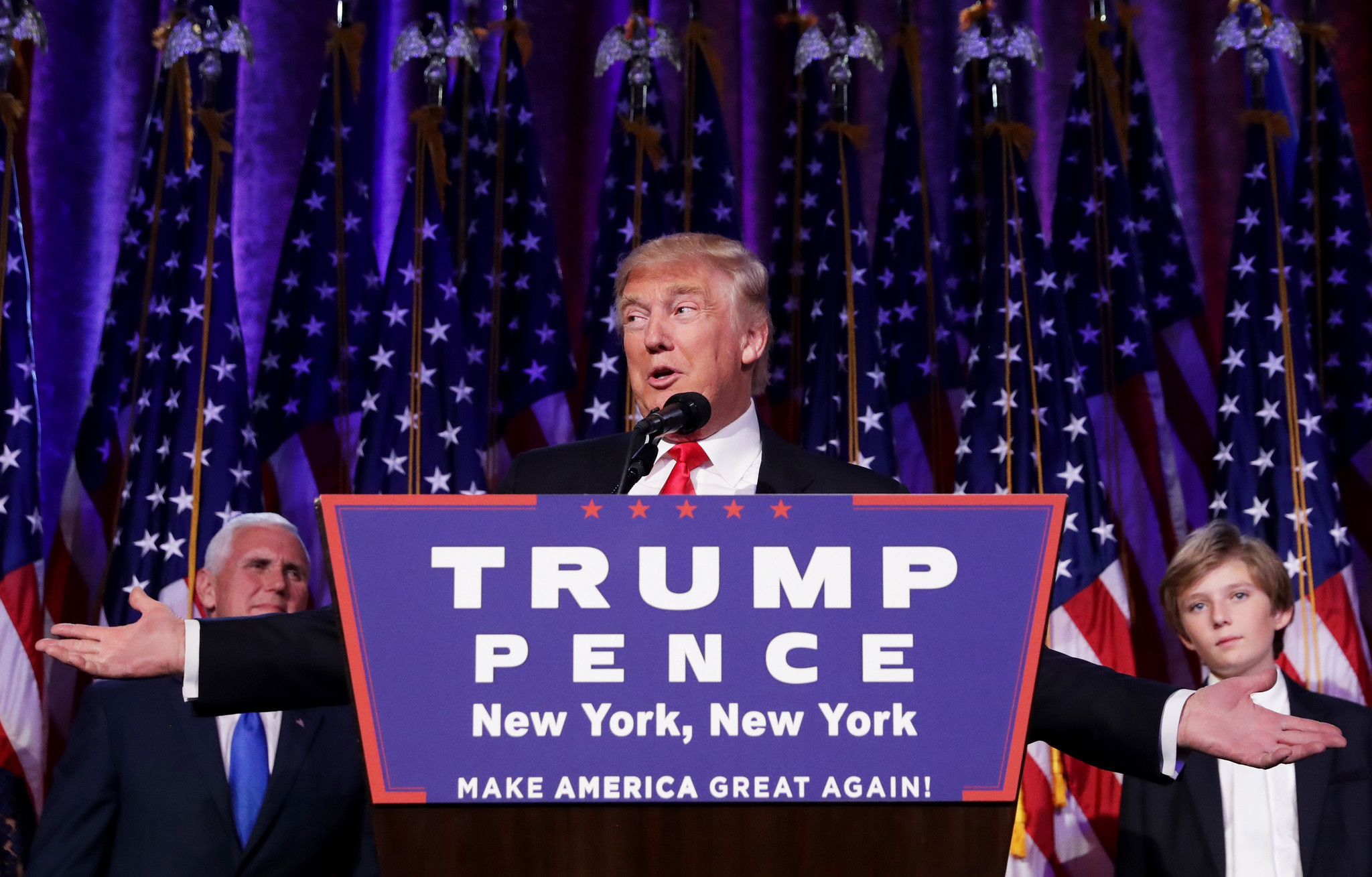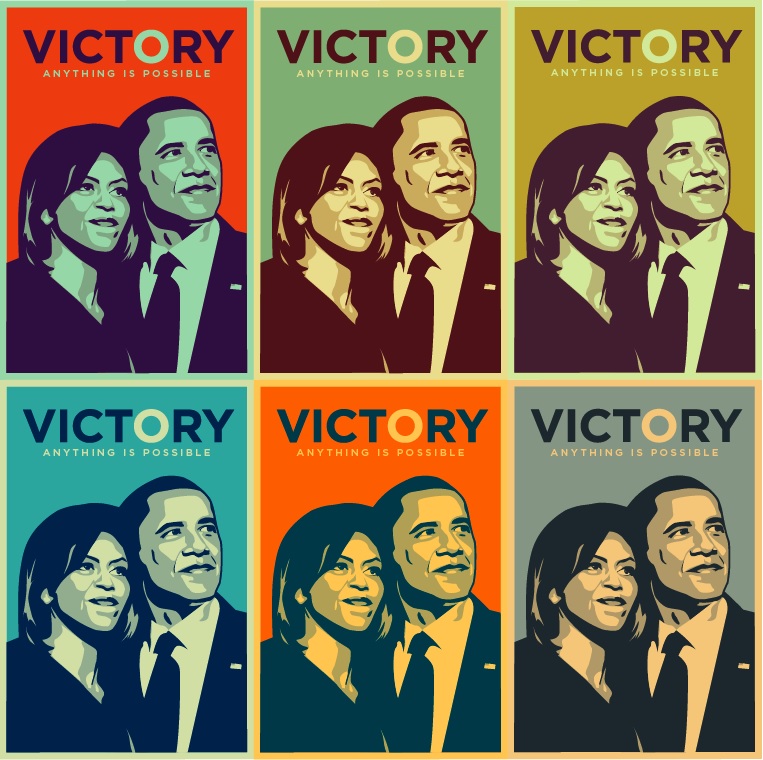The Audacity of “Nope”: Why a Trump Presidency Is No Surprise

After the 2008 election of Barack H. Obama, the 44th President of the United States, it became customary for some to suggest that America was a colorblind or ‘post-racial’ nation. The notion that America had arrived at a moment of putative ‘racelessness’—or that the U.S. had altogether transcended race and racism—was predicated narrowly and falsely on the fact that a black person was elected ‘by the people, for the people’ to the highest office in American government and, indeed, as leader of the free world. Such claims were utterly wrong. And it is precisely, in part, because we do not live in a post-racial society but, rather, a most racial society that the 2016 election was not surprising.
To be clear, I am southern, African American, Catholic, from Louisiana and working in a post-Katrina New Orleans that is still ‘recovering’ from neglect, as is the state itself—more recently—from the hellacious, debilitating policies of former Governor Bobby Jindal. And as a professor of English, African American Studies, and Women’s Studies, I am by no means ahistorical. Those of us who are all-too-familiar with the arc of history know that with every sign of (black) progress, whether perceived or actual, backlash follows. Our nation has shown that on countless occasions. From the end of the Reconstruction—with the 1876 election and (Hayes) Compromise of 1877 that ‘officiated’ the Jim Crow era—to current abridgements and overturning of laws enacted to protect civil, voting, and human rights in the 1960s, 1970s and beyond, steps are constantly being taken to suppress votes and previously won rights.
After two terms of the first African American U.S. president and the Obamas as the First Family, and the Black Lives Matter movement, November 8, 2016 was not surprising. It was far from shocking because the proverbial train that rages against progress, diversity, and inclusion regarding race, gender, sexuality, and religion is never ever late. And, too, “I’ve been black way too long,” as the saying goes, to be surprised by the 2016 election in which Trump’s platform appealed to those who harbor racist, xenophobic, sexist, Islamophobic or other types of hatred and disdain. It also tapped into the frustrated and nativist notion, “Make America Great Again,” which essentially translates into “make America white again.” As is oft the case, he achieved this vis-à-vis the age-old maneuver of stigmatizing as well as rendering blacks and others as stagnate, inferior and, thereby, threatening. History and the writings of Du Bois are instructive and useful here.

In 1903, when W.E.B. Du Bois penned The Souls of Black Folks, at the crux of his consequential work was not only an examination of race or ‘the color-line’ in the 20th century and beyond, but also a foundational question: “How does it feel to be a problem?” This query or sensibility—the perception of blackness as somehow inherently problematic—is precisely, in part, what Du Bois explores as he theorizes the dialectic of being black in America: that is, the very precarious relationship of black people and, by extension, blackness to America.
When looking at America from the vantage point of how black people and black identity are rendered a ‘problem,’ an anomaly, or as the diametrical opposite of ‘Americanness’—almost always conflated with whiteness—what becomes transparent is that America’s experiment in democracy and inclusion has not been fully realized. Furthermore, black people have historically played an integral role in the “building of an American democratic republic or nation,” which has essentially required the fundamental debasement, relegation, and stigmatization of black people. To this end, the subordination of black people constitutes “the necessary condition for the flourishing of American democracy,” to quote Cornel West, and “the tragic prerequisite for America itself.” This is why the ascent of Donald J. Trump in this very moment as president-elect is not unpredictable, even as it has, surprisingly, caused a state of consternation, disbelief, and shock among many.
What became transparent throughout the 2016 election season is how Trump, whether deliberately or inadvertently, capitalized on and deployed associations of black identity with a state of disarray: as problematic in not simply condition but also inherently by nature. He achieved this on his campaign trail and during debates in his references to “the blacks” and “the African Americans” through a type of ‘othering’ and stigmatizing of black people. “What do you have to lose by trying something new, like Trump?,” he exclaimed, “You’re living in your poverty, your schools are no good, you have no jobs, 58 percent of your youth is unemployed.” Asserting this to an almost exclusively white audience in Virginia—wherein resonates Thomas Jefferson’s very own Notes on the State of Virginia in which he discusses the inherent natural inferiority of blacks—Trump disseminates statistics that were grossly and exponentially inflated.

His statement also exaggerated the state of black folks while generalizing black people’s varied conditions to a deplorable and destitute status (usually relegating black folks to “inner cities” or neighborhood “war zones”). To some who heard this, it may have suggested that “the system has failed you.” Yet, it was more far-reaching because it sent the message that blacks, as other marginalized groups, are a “collective problem” holding America back. This message was reinforced in his reductive assertions that Mexicans are “rapists and criminals” as well as “illegals,” as he characterized them, while Muslims and Muslim Americans are “radical Islamic terrorists.”
The problem, was not that blacks were problematic, nor were Mexicans, Muslims, women, those differently-abled, or others but, rather, that far too many folks had assumed that America as a nation had arrived at a destination of marked democratic freedom, equality, and progress. They were short-sighted.
What this election confirms, instead, is what those committed to social justice, anti-racism, and anti-discrimination have long known and articulated: “nope,” we have not yet arrived. And that audacity of “nope,” that clarity as to where we all stand, is precisely what is necessary and essential to get us where we need to go. A catalogue of denial, violence, or suppression will not work. As writer-activist James Baldwin reminds us, “not everything that is faced can be changed, but nothing can be changed until it is faced.” In this election, America and each and every one of us have been issued a mirror. The question is, in facing reality unadorned and seeing it for exactly what it is, how will we, the people, respond?
Copyright © AAIHS. May not be reprinted without permission.
Absolutely the truth! Thank you for reminding us that we are holding a mirror and our reflection can and will be the backbone and the true definition of what America is–One Nation under God, Indivisible with liberty and Justice for All!